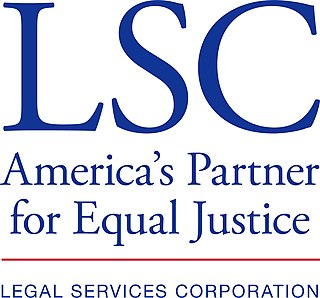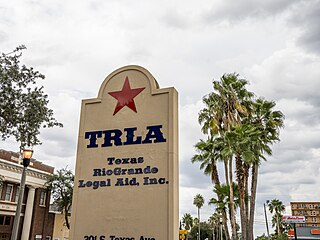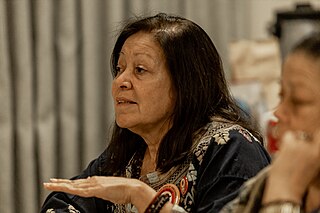
Chicano or Chicana is an ethnic identity for Mexican Americans who have a non-Anglo self-image, embracing their indigenous ancestry. Chicano was originally a classist and racist slur used toward low-income Mexicans that was reclaimed in the 1940s among youth who belonged to the Pachuco and Pachuca subculture. In the 1960s, Chicano was widely reclaimed in the building of a movement toward political empowerment, ethnic solidarity, and pride in being of indigenous descent. Chicano developed its own meaning separate from Mexican American identity. Youth in barrios rejected cultural assimilation into whiteness and embraced their own identity and worldview as a form of empowerment and resistance. The community forged an independent political and cultural movement, sometimes working alongside the Black power movement.

The United Farm Workers of America, or more commonly just United Farm Workers (UFW), is a labor union for farmworkers in the United States. It originated from the merger of two workers' rights organizations, the Agricultural Workers Organizing Committee (AWOC) led by organizer Larry Itliong, and the National Farm Workers Association (NFWA) led by César Chávez and Dolores Huerta. They became allied and transformed from workers' rights organizations into a union as a result of a series of strikes in 1965, when the mostly Filipino farmworkers of the AWOC in Delano, California, initiated a grape strike, and the NFWA went on strike in support. As a result of the commonality in goals and methods, the NFWA and the AWOC formed the United Farm Workers Organizing Committee on August 22, 1966. This organization was accepted into the AFL–CIO in 1972 and changed its name to the United Farm Workers Union.
Latino studies is an academic discipline which studies the experience of people of Latin American ancestry in the United States. Closely related to other ethnic studies disciplines such as African-American studies, Asian American studies, and Native American studies, Latino studies critically examines the history, culture, politics, issues, sociology, spirituality (Indigenous) and experiences of Latino people. Drawing from numerous disciplines such as sociology, history, literature, political science, religious studies and gender studies, Latino studies scholars consider a variety of perspectives and employ diverse analytical tools in their work.

The Legal Services Corporation (LSC) is a publicly funded, 501(c)(3) non-profit corporation established by the United States Congress. It seeks to ensure equal access to justice under the law for all Americans by providing funding for civil legal aid to those who otherwise would be unable to afford it. The LSC was created in 1974 with bipartisan congressional sponsorship and the support of the Nixon administration, and LSC is funded through the congressional appropriations process.

Dolores Clara Fernández Huerta is an American labor leader and civil rights activist who, with Cesar Chavez, is a co-founder of the United Farmworkers Association, which later merged with the Agricultural Workers Organizing Committee to become the United Farm Workers (UFW). Huerta helped organize the Delano grape strike in 1965 in California and was the lead negotiator in the workers' contract that was created after the strike.
Cruz Reynoso was an American civil rights lawyer and jurist.

Luis Miguel Valdez is an American playwright, screenwriter, film director and actor. Regarded as the father of Chicano film and playwriting, Valdez is best known for his play Zoot Suit, his movie La Bamba, and his creation of El Teatro Campesino. A pioneer in the Chicano Movement, Valdez broadened the scope of theatre and arts of the Chicano community.
The Chicanx Latinx Law Review is a student-edited and produced law journal at the University of California, Los Angeles School of Law. Established in 1972, it is the first law journal in the United States to focus primarily on how law and policy affect the Chicana/o and Latina/o community within the country. Today, the student publication includes reputable scholarly work on an array of topics, such as affirmative action and education, Spanish and Mexican land grants, environmental justice, language rights, and immigration reform. It has been cited as a persuasive authority in courtrooms across the country.
The Mexican American Legal Defense and Educational Fund (MALDEF) is a national non-profit civil rights organization formed in 1968 by Jack Greenberg to protect the rights of Latinos in the United States. Founded in San Antonio, Texas, it is currently headquartered in Los Angeles, California and maintains regional offices in Sacramento, San Antonio, Chicago, and Washington, D.C.

Chicana/o studies, also known as Chican@ studies, originates from the Chicano Movement of the late 1960s and 1970s, and is the study of the Chicana/o and Latina/o experience. Chican@ studies draws upon a variety of fields, including history, sociology, the arts, and Chican@ literature. The area of studies additionally emphasizes the importance of Chican@ educational materials taught by Chican@ educators for Chican@ students.

Texas RioGrande Legal Aid formerly Texas Rural Legal Aid (TRLA) is a nonprofit agency that specializes in providing free civil legal services to the poor in a 68-county service area. It also operates a migrant farmworker legal assistance program in six southern states and a public defender program in southern rural counties of Texas. Established in 1970, TRLA is the largest legal aid provider in Texas and the second largest in the United States.
Legal aid in the United States is the provision of assistance to people who are unable to afford legal representation and access to the court system in the United States. In the US, legal aid provisions are different for criminal law and civil law. Criminal legal aid with legal representation is guaranteed to defendants under criminal prosecution who cannot afford to hire an attorney. Civil legal aid is not guaranteed under federal law, but is provided by a variety of public interest law firms and community legal clinics for free or at reduced cost. Other forms of civil legal aid are available through federally-funded legal services, pro bono lawyers, and private volunteers.
California by far has the largest WIC program in the nation. It is a program of the California Department of Public Health which administers contracts with 84 local agencies – half local governments and half private, non-profit community organizations – which serve 1.46 million participants at 650 local sites statewide, with FY 2010 food expenditures of $827 million and nutrition services and administration expenditures of $304 million.
Adela de la Torre is an American professor and university administrator. She has served as the ninth president of San Diego State University in San Diego, California, since 2018. She is the first woman to serve in the role.
Patricia Zavella is an anthropologist and professor at the University of California, Santa Cruz in the Latin American and Latino Studies department. She has spent a career advancing Latina and Chicana feminism through her scholarship, teaching, and activism. She was president of the Association of Latina and Latino Anthropologists and has served on the executive board of the American Anthropological Association. In 2016, Zavella received the American Anthropological Association's award from the Committee on Gender Equity in Anthropology to recognize her career studying gender discrimination. The awards committee said Zavella’s career accomplishments advancing the status of women, and especially Latina and Chicana women have been exceptional. She has made critical contributions to understanding how gender, race, nation, and class intersect in specific contexts through her scholarship, teaching, advocacy, and mentorship. Zavella’s research focuses on migration, gender and health in Latina/o communities, Latino families in transition, feminist studies, and ethnographic research methods. She has worked on many collaborative projects, including an ongoing partnership with Xóchitl Castañeda where she wrote four articles some were in English and others in Spanish. The Society for the Anthropology of North America awarded Zavella the Distinguished Career Achievement in the Critical Study of North America Award in the year 2010. She has published many books including, most recently, "I'm Neither Here Nor There, Mexicans"Quotidian Struggles with Migration and Poverty, which focuses on working class Mexican Americans struggle for agency and identity in Santa Cruz County.
The Chicana Rights Project(CRP) was a feminist organization created in 1974 to address the legal rights of poor Mexican-American women. The organization was guided by the Mexican American Legal Defense and Educational Fund (MALDEF) and created by Vilma Martinez. The project was headquartered in San Francisco and San Antonio.

Mónica Ramírez is an American activist, author, civil rights attorney, entrepreneur, and public speaker. She has been engaged in service and advocacy on behalf of farmworkers, Latinas and immigrant women.
Refugio I. Rochin is an American professor emeritus in agricultural and resource economics and Chicana/o studies at the University of California, Davis, director emeritus at the University of California, Santa Cruz, and instructor at Pennsylvania State University World Campus. He is an expert on rural Latinas/os and Latina/o Studies.

Mary Romero is an American sociologist. She is Professor of Justice Studies and Social Inquiry at Arizona State University, with affiliations in African and African American Studies, Women and Gender Studies, and Asian Pacific American Studies. Before her arrival at ASU in 1995, she taught at University of Oregon, San Francisco State University, and University of Wisconsin-Parkside. Professor Romero holds a bachelor's degree in sociology with a minor in Spanish from Regis College in Denver, Colorado. She holds a PhD in sociology from the University of Colorado. In 2019, she served as the 110th President of the American Sociological Association.

Mily Treviño-Sauceda is an American writer, trade unionist and leader of the National Alliance of Farmworker Women, a nonprofit organization advocating for the safety and rights of women laborers in agriculture. She is celebrated as a founder of the women's farmworker movement in the United States. She was recognized twice by People magazine in 2006, and in 2018, Treviño-Sauceda was co-awarded the Smithsonian Institution's American Ingenuity Award for Social Progress.











